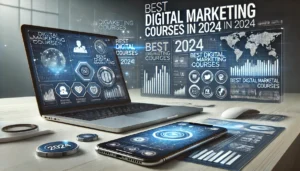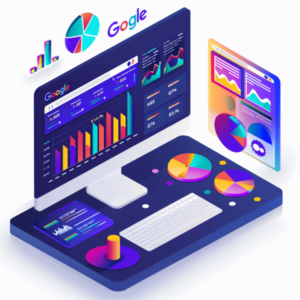In the ever-evolving landscape of digital marketing, staying ahead of the curve requires leveraging cutting-edge tools that streamline workflows, enhance customer experiences, and drive measurable results. As we step into 2025, marketing automation tools have become indispensable for brands aiming to revolutionize their campaigns. Let’s explore the top marketing automation tools reshaping how marketers operate in 2025.

1. HubSpot
HubSpot continues to lead the pack with its all-in-one marketing, sales, and customer service platform. Its advanced automation features allow businesses to design intricate workflows, segment audiences effectively, and deliver personalized content. New for 2025, HubSpot’s AI-driven insights provide predictive analytics, helping marketers anticipate trends and optimize campaigns in real-time.
2. Marketo Engage
A staple for B2B marketers, Marketo Engage by Adobe has raised the bar with enhanced AI-powered tools for lead nurturing and account-based marketing (ABM). Its 2025 upgrades include real-time personalization engines and deeper integrations with CRM platforms, ensuring a seamless alignment between sales and marketing teams.
3. Pardot (Now Salesforce Marketing Cloud Account Engagement)
As part of Salesforce’s robust ecosystem, Pardot is a go-to solution for B2B marketing automation. The 2025 version boasts improved AI capabilities, enabling marketers to create dynamic campaigns tailored to specific customer behaviors and preferences. Enhanced email marketing tools and lead scoring systems make it easier than ever to convert prospects into loyal customers.
4. ActiveCampaign
ActiveCampaign’s focus on customer experience automation (CXA) has made it a favorite among small and medium-sized businesses. Its 2025 features include AI-enhanced email personalization, predictive customer journeys, and a unified dashboard for managing multi-channel campaigns. These updates help brands deliver a consistent and engaging experience across touchpoints.
5. Mailchimp
Known for its user-friendly interface, Mailchimp has evolved into a powerhouse for marketing automation. In 2025, it introduces advanced e-commerce integrations, AI-driven content suggestions, and robust analytics tools. Small businesses can now access enterprise-grade capabilities, making Mailchimp a versatile choice for scaling campaigns.
6. Eloqua
Oracle’s Eloqua is a top choice for enterprise-level marketing teams. With its 2025 innovations, Eloqua offers predictive lead scoring, cross-channel orchestration, and advanced customer segmentation. Its seamless integration with Oracle’s data cloud ensures marketers have access to enriched customer insights for better targeting.
7. Zoho Marketing Automation
Zoho’s marketing automation platform provides a cost-effective yet powerful solution for businesses of all sizes. The 2025 update includes AI-enhanced workflow automation, advanced analytics, and personalized customer engagement tools. Zoho’s simplicity and affordability make it an excellent choice for growing companies.
8. Sendinblue
Sendinblue’s focus on simplicity and functionality makes it a standout tool for email marketing and automation. In 2025, it introduces cutting-edge AI features for crafting engaging emails, optimizing send times, and enhancing SMS marketing campaigns. Its multi-channel approach ensures brands stay connected with their audiences.
9. Klaviyo
A favorite among e-commerce businesses, Klaviyo is known for its data-driven marketing capabilities. The 2025 version enhances its predictive analytics and segmentation tools, allowing brands to create hyper-targeted campaigns that boost customer retention and revenue.
10. ActiveTrail
ActiveTrail has carved a niche in marketing automation with its user-friendly tools for email and SMS campaigns. The 2025 update focuses on AI-driven personalization and advanced reporting features, empowering marketers to craft campaigns that resonate deeply with their audiences.
Final Thoughts
Marketing automation tools in 2025 are more intelligent, intuitive, and integrated than ever before. These platforms are not just about automating tasks; they’re about empowering marketers to build meaningful connections, deliver exceptional customer experiences, and achieve outstanding results. By leveraging these tools, brands can stay competitive in an increasingly digital-first world.
Which of these tools are you excited to try in 2025? Share your thoughts in the comments below!




